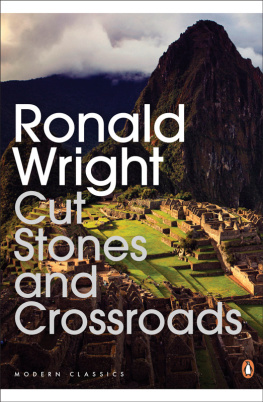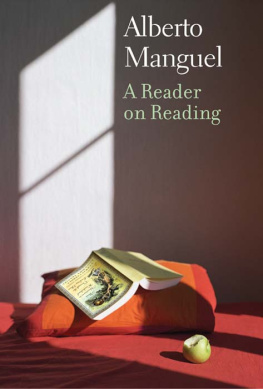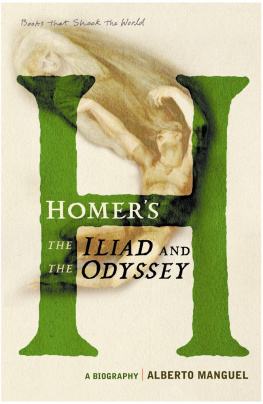Curiosity
ALBERTO MANGUEL
Curiosity

Published with assistance from the foundation established in memory of
Amasa Stone Mather of the Class of 1907, Yale College.
Copyright 2015 by Alberto Manguel, c/o Guillermo Schavelzon & Assoc.,
Agencia Literaria, www.schavelzon.com.
All rights reserved.
This book may not be reproduced, in whole or in part, including illustrations, in any form (beyond that copying permitted by Sections 107 and 108 of the U.S. Copyright Law and except by reviewers for the public press), without written permission from the publishers.
Yale University Press books may be purchased in quantity for educational, business, or promotional use. For information, please e-mail (U.K. office).
O Where are you Going, copyright 1934 and renewed 1962 by W. H. Auden; from W. H. Auden: Collected Poems, by W. H. Auden. Used by permission of Random House, an imprint and division of Random House LLC. All rights reserved. Copyright 1934 by W. H. Auden, renewed. Reprinted by permission of Curtis Brown, Ltd.
The Panther, translation copyright 1982 by Stephen Mitchell; from Selected Poetry of Rainer Maria Rilke, by Rainer Maria Rilke, translated by Stephen Mitchell. Used by permission of Random House, an imprint and division of Random House LLC.
All rights reserved.
Things to Come, from Collected Poems: 19291974, by James Reeves.
Reprinted by permission of the James Reeves Estate.
Designed by Sonia L. Shannon.
Set in A Gos type by Integrated Publishing Solutions.
Printed in the United States of America.
Library of Congress Cataloging-in-Publication Data
Manguel, Alberto.
Curiosity / Alberto Manguel.
pages cm
Includes bibliographical references and index.
ISBN 978-0-300-18478-5 (hardback)
1. Manguel, AlbertoBooks and reading. 2. LiteratureAppreciation. I. Title.
PR9199.3.M34845C87 2015
814'.54dc23
[B] 2014034697
A catalogue record for this book is available from the British Library.
This paper meets the requirements of ANSI/NISO Z39.481992
(Permanence of Paper).
10 9 8 7 6 5 4 3 2 1
To Amelia who, like the Elephants Child,
is so full of satiable curtiosity.
With all my love.
CONTENTS
Curiosity

Virgil explains to Dante that Beatrice sent him to show Dante the right path. Woodcut illustrating Canto II of the Inferno, printed in 1487 with commentary by Cristoforo Landino. (Beinecke Rare Book and Manuscript Library, Yale University)
INTRODUCTION
On her death bed, Gertrude Stein lifted her head and asked: What is the answer? When no one spoke, she smiled and said: In that case, what is the question?
DONALD SUTHERLAND, Gertrude Stein:
A Biography of Her Work

I am curious about curiosity.
One of the first words that we learn as a child is why. Partly because we want to know something about the mysterious world into which we have unwillingly entered, partly because we want to understand how the things in that world function, and partly because we feel an ancestral need to engage with the other inhabitants of that world, after our first babblings and cooings, we begin to ask Why?others. As any inquisitor knows, affirmations tend to isolate; questions bind. Curiosity is a means of declaring our allegiance to the human fold.
Perhaps all curiosity can be summed up in Michel de Montaignes famous question Que sais-je?: What do I know? which appears in the second book of his Essays. Speaking of the skeptic philosophers, Montaigne remarked that they were unable to express their general ideas in any manner of speech, because, according to him, they would have needed a new language. Our language, says Montaigne, is formed of affirmative propositions, which are contrary to their thinking. And then he adds: This fantasy is better conceived through the question What do I know?, which I carry as a motto on a shield. The source of the question is, of course, the Socratic Know thyself, but in Montaigne it becomes not an existentialist assertion of the need to know who we are but rather a continuous state of questioning of the territory through which our mind is advancing (or has already advanced) and of the uncharted country ahead. In the realm of Montaignes thought, the affirmative propositions of language turn on themselves and become questions.
My friendship with Montaigne dates back to my adolescence, and his Essays have since been for me a kind of autobiography, as I keep finding in his comments my own preoccupations and experiences translated into luminous prose. Through his questioning of commonplace subjects (the duties of friendship, the limits of education, the pleasure of the countryside) and his exploration of extraordinary ones (the nature of cannibals, the identity of monstrous beings, the use of thumbs), Montaigne maps out for me my own curiosity, constellated at different times and in many places. Books have been useful to me, he confesses, less for instruction than as training. That has been precisely my case.
Reflecting on Montaignes reading habits, for example, it occurred to me that it might be possible to make some notes on his Que sais-je? by following Montaignes own method of borrowing ideas from his library (he compared himself as a reader to a bee gathering pollen to make his own honey) and projecting these forward into my own time.
As Montaigne would have willingly admitted, his examination of what we know was not a new venture in the sixteenth century: questioning the act of questioning had much older roots. Whence then cometh wisdom? asks Job in his distress, and where is the place of understanding? Enlarging on I find this modest method wonderfully reassuring.
According to Darwinian theory, human imagination is an instrument of survival. In order better to learn about the world, and therefore be better equipped to cope with its pitfalls and dangers, Homo sapiens developed the ability to reconstruct outer reality in the mind and to conceive situations that it could confront before actually encountering them. Conscious of ourselves and conscious of the world around us, we are able to build mental cartographies of those territories and explore them in an infinite number of ways, and then choose the best and most efficient. Montaigne would have agreed: we imagine in order to exist, and we are curious in order to feed our imaginative desire.
Imagination, as an essential creative activity, develops with practice, not through successes, which are conclusions and therefore blind alleys, but through failures, through attempts that prove to be mistaken and require new attempts that will also, if the stars are kind, lead to new failures. The histories of art and literature, like those of philosophy and science, are the histories of such enlightened failures. Fail. Try again. Fail better, was Becketts summation.
But in order to fail better we must be able to recognize, imaginatively, those mistakes and incongruities. We must be able to see that such-and-such a path does not lead us in the aspired direction, or that such-and-such a combination of words, colors, or numbers does not approximate the intuited vision in our mind. Proudly we record the moments in which our many inspired Archimedes shout Eureka! in their baths; we are less eager to recall the many more in which those, like the painter Frenhofer in Balzacs story, look upon their unknown masterpiece and say, Nothing, nothing!... Ill have produced nothing! Through those few moments of triumph and those many more of defeat runs the one great imaginative question: Why?
Next page






